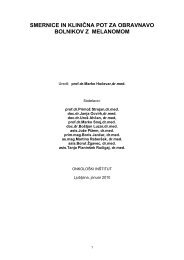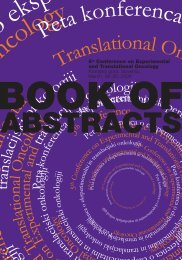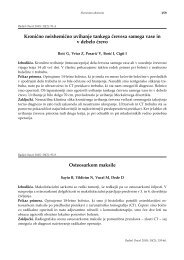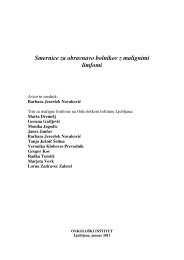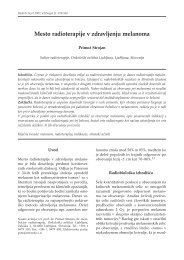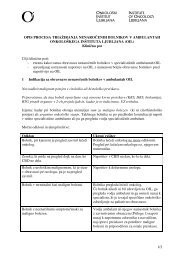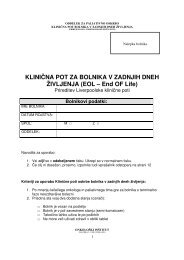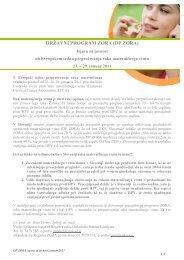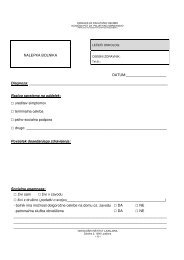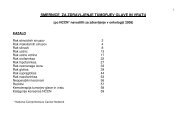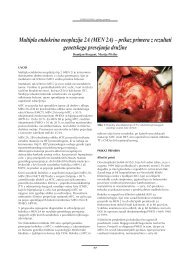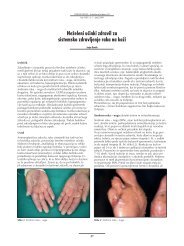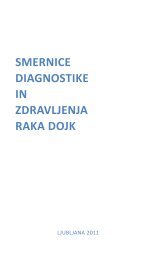Create successful ePaper yourself
Turn your PDF publications into a flip-book with our unique Google optimized e-Paper software.
Functional interdependence of natural protease inhibitor<br />
overexpression in the host: liver metastasis-promoting<br />
effects of TIMP-1 and Cystatin C counteracted by PAI-2<br />
Achim Krüger and Charlotte Kopitz<br />
Klinikum rechts der Isar der Technischen Universität München, Institut für Experimentelle<br />
Onkologie und Therapieforschung, Munich, Germany<br />
Elevated expression of natural proteinase inhibitors is often correlated with poor<br />
prognosis for cancer patients, although they inhibit the activity of metastasisassociated<br />
proteinases. Also overexpression of the broad-spectrum MMP inhibitor<br />
tissue inhibitor of metalloproteinases-1 (TIMP-1), of the plasminogen activator<br />
inhibitor-2 (PAI-2), and of cystatin C, an inhibitor of papain-like cysteine proteases,<br />
is associated with poor outcome of cancer patients, although anti-metastatic activity<br />
has been demonstrated for all of these inhibitors in animal models. The aim of this<br />
study was to discover functional interdependencies between the three proteinase<br />
inhibitors TIMP-1, cystatin C, and PAI-2 when simultaneously overexpressed in the<br />
host tissue during metastasis. Overexpression of the different protease-inhibitors<br />
in CD1nu/nu mice was achieved by adenoviral transfer of the respective cDNA.<br />
Three days after gene transfer the mice were challenged by intravenous inoculation<br />
of 1 x 10 6 lacZ-tagged human fibrosarcoma cells (HT1080lacZ-K15), which form<br />
large metastatic foci in the lung and single cell metastasis in the liver 21 days<br />
after inoculation. Simultaneous overexpression of TIMP-1 and cystatin C led to an<br />
additive anti-metastatic effect in the lung but led to formation of large, multi-cellular,<br />
metastatic foci in the liver. This liver metastasis-promoting effect of TIMP-1/cystatin C<br />
overexpression was associated with an increase of tissue-type plasminogen activator<br />
(tPA) protein levels. To test whether tPA suppression can counteract this effect, we<br />
simultaneously overexpressed the tPA inhibitor PAI-2 together with cystatin C and<br />
TIMP-1 in the liver. PAI-2 overexpression prevented the cystatin C/TIMP-1-induced<br />
liver macrometastasis, indicating that plasminogen activators are involved in the prometastatic<br />
effect. This study shows the possibility of natural proteinase inhibitorsinduced<br />
effects on organ-specific susceptibility to tumor cells. Combinatorial<br />
inhibition of three metastasis-associated proteolytic systems can counteract these<br />
effects. This finding may have implications on the design of combinatorial antiproteolytic<br />
therapies.<br />
l39<br />
57



